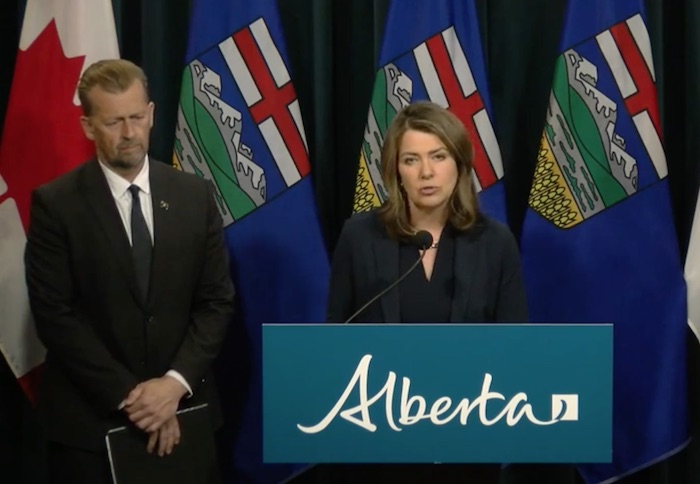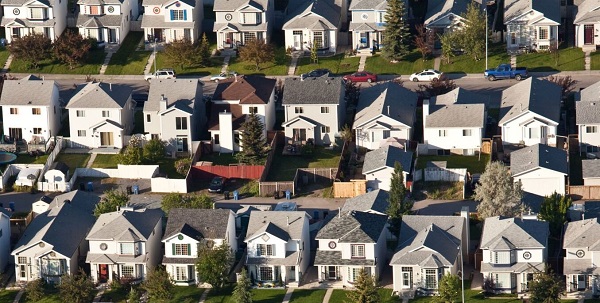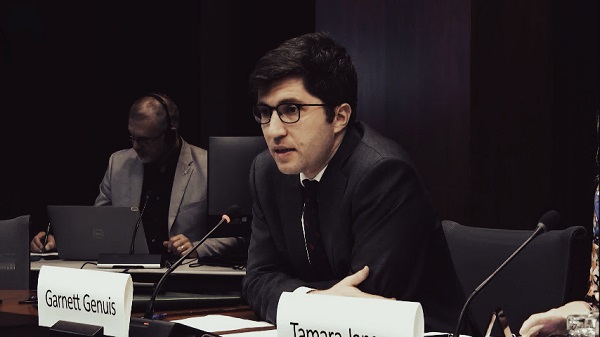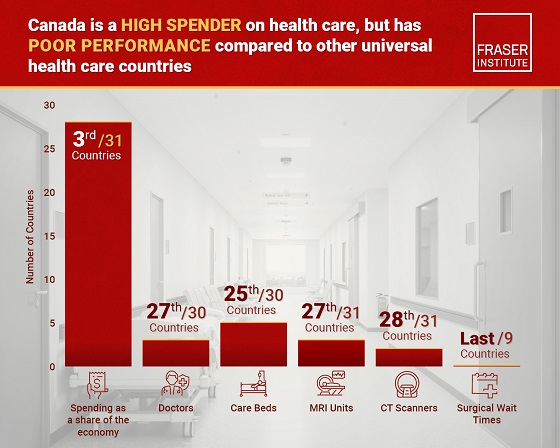Alberta
Alberta wildfire situation: Update 3

As of Saturday afternoon, more than 24,000 individuals have been evacuated from communities throughout north and central Alberta.
Those evacuated due to wildfires are asked to register at local reception centres or at emergencyregistration.alberta.
Current situation
- Alberta has declared a provincial state of emergency. Visit Alberta.ca/emergency for information or call 310-4455.
- Mandatory evacuation orders are in effect for the following areas. Please check alberta.ca/emergency or download the Alberta Emergency Alert mobile app for complete information:
- Parts of Brazeau County. Evacuees should register in Edmonton at the Expo Centre, Hall C, at 7515 118 Avenue.
- Parts of Northern Sunrise County.
- Parts of Mackenzie County. Evacuees should register at the High Level Rural Hall.
- The entire Town of Rainbow Lake. Evacuees should register in High Level at the High Level Arena, at 10101 105 Avenue.
- Fox Creek, Little Smoky and surrounding areas. Evacuees should register at the Allan and Jean Millar Centre, at 58 Sunset Boulevard in Whitecourt.
- Parts of Sturgeon Lake Cree Nation and the Municipal District of Greenview. Evacuees should register at Memorial Hall, 4808 50 Street in Valleyview.
- Parts of the County of Grande Prairie. Evacuees should register at the Bonnets Energy Centre, 10017 99 Avenue, Grande Prairie.
- Parts of Big Lakes County. Evacuees should register at Elks Rodeo Hall on Highway 749.
- Parts of Lac Ste Anne County. Evacuees should register at the Mayerthorpe Diamond Centre, at 4184 54 Street.
- Parts of Yellowhead County, including the Town of Edson.
- The communities of Whitefish River and Aitkameg. Evacuees should register at the Town of Slave Lake office, at 10 Main Street, Slave Lake.
- The Hamlet of Entwistle. Evacuees should register at Wabamun Jubilee Hall, at 5132 53 Avenue in Wabamun.
- Parkland County and the Hamlet of Entwistle. Evacuees should register at Wabamun Jubilee Hall at 5132 53 Avenue in Wabamun.
- Residents of the following areas should be prepared to evacuate on short notice:
- The Grovesdale area of the Municipal District of Greenview
- The area west of Beaverdam Provincial Recreation Area and east of the Bighorn Dam, including the hamlet of Nordegg.
- Parts of the County of Grande Prairie, including Pipestone Creek area.
- The town of High Prairie.
- Parts of Wetaskiwin County.
- Sixteen declared states of local emergency and two band council resolution include:
- Big Lakes County
- Brazeau County
- County of Grande Prairie
- Clear Hills County
- Clearwater County
- Drayton Valley
- Town of Edson
- MD of Fairview
- Town of High Prairie
- Northern Sunrise County
- East Prairie Metis Settlement
- Saddle Hills County
- Lac St. Anne County
- Parkland County
- Rainbow Lake
- Yellowhead County
- The Little Red River Cree Nation (Fox Lake) has declared a band council resolution
- Whitefish Lake First Nation has declared a band council resolution
Information for evacuees
- Evacuees should register at the reception centre identified for their community so staff can quickly assist them and connect them with the resources they need.
- Evacuees with special needs who are unable to stay in an evacuation centre can request emergency financial assistance to cover hotel accommodations.
- Special needs could include having a disability, a medical condition or other family needs.
- Apply for emergency financial assistance by visiting an Alberta Supports Centre or calling the Income Support Contact Centre at 1-866-644-5135. Information is also available through the Alberta Supports Contact Centre at 1-877-644-9992.
- Albertans affected by wildfires, including evacuees, can access supports by calling the Alberta Supports Contact Centre at 1-877-644-9992.
- The centre is open from 8:15 a.m. to 8 p.m. on weekdays and from 9 a.m. to 3 p.m. on weekends.
- The Income Support Contact Centre is also available 24-7 and provides emergency financial assistance. It can be reached at 1-866-644-5135.
Fire bans and other restrictions
- Unusually warm, dry weather and strong winds mean it is easier for a wildfire to start and spread.
- As a result of these conditions, the entire province is under a fire ban. No open burning is allowed, including backyard fire pits inside the Forest Protection Area. Alberta Parks and many municipalities and communities have ordered their own bans and restrictions. For more information, visit Albertafirebans.ca.
- A provincial off-highway vehicle restriction is also in place, which means the recreational use of off-highway vehicles on public land, including on designated OHV trails, is prohibited.
Wildfire activity updates
- There are currently 110 active wildfires in the Forest Protection Area, 37 of which are classified as out of control.
- Information on all wildfires is on the Alberta Wildfire dashboard and the Alberta Wildfire app.
Travel
- There are multiple road closures and advisories for north and central Alberta.
- Visit 511.alberta.ca for up-to-date information on road closures and travel advisories.
Health
- Alberta Health Services is supporting the evacuation of the Drayton Valley Hospital.
- Patients will be moved to Rocky Mountain House and Edmonton hospitals.
- Edson Healthcare Centre has been fully evacuated with patients/continuing care residents and families being notified of new location of all patients and continuing care residents.
- Evacuation of the Fox Creek Health Centre is currently underway.
- AHS continues to work in providing care in the community to transport residents to other facilities in Alberta and Edmonton.
- EMS and zones continues to be fully engaged to ensure safe transport and care of all patients/residents. Other zones and provincial programs are assisting with reception centres, and ensuring availability of spaces/equipment as needed.
- Alberta Health Services is deploying mobile air quality monitoring, as multiple communities are reporting high levels of smoke and ash residue.
- Residents affected by the wildfires who have health care-related questions and are looking for up-to-date information about the wildfires or health care resources, should visit the Alberta Health Services Wildfire Resources webpage.
- For non-emergency health advice, including information on their health care options, residents should call Health Link at 811.
Justice
- Due to the wildfire evacuation of Evansburg, Evansburg court sittings on Monday, May 8 have been relocated to Stony Plain.
- The Drayton Valley circuit court is within the Town of Drayton Valley’s evacuation order. The next sitting is scheduled for Tuesday, May 16.
Agriculture and livestock
- Agricultural societies may have room for livestock evacuated from wildfire areas: Alberta Association of Agricultural Societies.
- Evacuated farmers and ranchers:
- can contact the wildfire resource line at 310-4455 with agriculture and livestock related questions.
- should register at the reception centre identified for their community so staff can quickly assist them and connect them with the resources they need.
- may need re-entry permits if they want to go back into an evacuated area to check on livestock, and should check with their municipality before entering.
Alberta Emergency Alerts
- For up-to-the-minute Alberta Emergency Alert information, visit Alberta Emergency Alert.
- Albertans are encouraged to download the Alberta Emergency Alert mobile app, which immediately pushes all alerts out to subscribers.
Alberta
Calgary’s High Property Taxes Run Counter to the ‘Alberta Advantage’

By David Hunt and Jeff Park
Of major cities, none compare to Calgary’s nearly 50 percent property tax burden increase between censuses.
Alberta once again leads the country in taking in more new residents than it loses to other provinces and territories. But if Canadians move to Calgary seeking greater affordability, are they in for a nasty surprise?
In light of declining home values and falling household incomes amidst rising property taxes, Calgary’s overall property tax burden has skyrocketed 47 percent between the last two national censuses, according to a new study by the Aristotle Foundation for Public Policy.
Between 2016 and 2021 (the latest year of available data), Calgary’s property tax burden increased about twice as fast as second-place Saskatoon and three-and-a-half times faster than Vancouver.
The average Calgary homeowner paid $3,496 in property taxes at the last census, compared to $2,736 five years prior (using constant 2020 dollars; i.e., adjusting for inflation). By contrast, the average Edmonton homeowner paid $2,600 in 2021 compared to $2,384 in 2016 (in constant dollars). In other words, Calgary’s annual property tax bill rose three-and-a-half times more than Edmonton’s.
This is because Edmonton’s effective property tax rate remained relatively flat, while Calgary’s rose steeply. The effective rate is property tax as a share of the market value of a home. For Edmontonians, it rose from 0.56 percent to 0.62 percent—after rounding, a steady 0.6 percent across the two most recent censuses. For Calgarians? Falling home prices collided with rising taxes so that property taxes as a share of (market) home value rose from below 0.5 percent to nearly 0.7 percent.
Plug into the equation sliding household incomes, and we see that Calgary’s property tax burden ballooned nearly 50 percent between censuses.
This matters for at least three reasons. First, property tax is an essential source of revenue for municipalities across Canada. City councils set their property tax rate and the payments made by homeowners are the backbone of municipal finances.
Property taxes are also an essential source of revenue for schools. The province has historically required municipalities to directly transfer 33 percent of the total education budget via property taxes, but in the period under consideration that proportion fell (ultimately, to 28 percent).
Second, a home purchase is the largest expense most Canadians will ever make. Local taxes play a major role in how affordable life is from one city to another. When municipalities unexpectedly raise property taxes, it can push homeownership out of reach for many families. Thus, homeoowners (or prospective homeowners) naturally consider property tax rates and other local costs when choosing where to live and what home to buy.
And third, municipalities can fall into a vicious spiral if they’re not careful. When incomes decline and residential property values fall, as Calgary experienced during the period we studied, municipalities must either trim their budgets or increase property taxes. For many governments, it’s easier to raise taxes than cut spending.
But rising property tax burdens could lead to the city becoming a less desirable place to live. This could mean weaker residential property values, weaker population growth, and weaker growth in the number of residential properties. The municipality then again faces the choice of trimming budgets or raising taxes. And on and on it goes.
Cities fall into these downward spirals because they fall victim to a central planner’s bias. While $853 million for a new arena for the Calgary Flames or $11 million for Calgary Economic Development—how City Hall prefers to attract new business to Calgary—invite ribbon-cuttings, it’s the decisions about Calgary’s half a million private dwellings that really drive the city’s finances.
Yet, a virtuous spiral remains in reach. Municipalities tend to see the advantage of “affordable housing” when it’s centrally planned and taxpayer-funded but miss the easiest way to generate more affordable housing: simply charge city residents less—in taxes—for their housing.
When you reduce property taxes, you make housing more affordable to more people and make the city a more desirable place to live. This could mean stronger residential property values, stronger population growth, and stronger growth in the number of residential properties. Then, the municipality again faces a choice of making the city even more attractive by increasing services or further cutting taxes. And on and on it goes.
The economy is not a series of levers in the mayor’s office; it’s all of the million individual decisions that all of us, collectively, make. Calgary city council should reduce property taxes and leave more money for people to make the big decisions in life.
Jeff Park is a visiting fellow with the Aristotle Foundation for Public Policy and father of four who left Calgary for better affordability. David Hunt is the research director at the Calgary-based Aristotle Foundation for Public Policy. They are co-authors of the new study, Taxing our way to unaffordable housing: A brief comparison of municipal property taxes.
Alberta
Petition threatens independent school funding in Alberta

From the Fraser Institute
Recently, amid the backdrop of a teacher strike, an Alberta high school teacher began collecting signatures for a petition to end government funding of independent schools in the province. If she gets enough people to sign—10 per cent of the number of Albertans who voted in the last provincial election—Elections Alberta will consider launching a referendum about the issue.
In other words, the critical funding many Alberta families rely on for their children’s educational needs may be in jeopardy.
In Alberta, the provincial government partially funds independent schools and charter schools. The Alberta Teachers’ Association (ATA), whose members are currently on strike, opposes government funding of independent and charter schools.
But kids are not one-size-fits-all, and schools should reflect that reality, particularly in light of today’s increasing classroom complexity where different kids have different needs. Unlike government-run public schools, independent schools and charter schools have the flexibility to innovate and find creative ways to help students thrive.
And things aren’t going very well for all kids or teachers in government-run pubic school classrooms. According to the ATA, 93 per cent of teachers report encountering some form of aggression or violence at school, most often from students. Additionally, 85 per cent of unionized teachers face an increase in cognitive, social/emotional and behavioural issues in their classrooms. In 2020, one-quarter of students in Edmonton’s government-run public schools were just learning English, and immigration to Canada—and Alberta especially—has exploded since then. It’s not easy to teach a classroom of kids where a significant proportion do not speak English, many have learning disabilities or exceptional needs, and a few have severe behavioural problems.
Not surprisingly, demand for independent schools in Alberta is growing because many of these schools are designed for students with special needs, Autism, severe learning disabilities and ADHD. Some independent schools cater to students just learning English while others offer cultural focuses, expanded outdoor time, gifted learning and much more.
Which takes us back to the new petition—yet the latest attempt to defund independent schools in Alberta.
Wealthy families will always have school choice. But if the Alberta government wants low-income and middle-class kids to have the ability to access schools that fit them, too, it’s crucial to maintain—or better yet, increase—its support for independent and charter schools.
Consider a fictional Alberta family: the Millers. Their daughter, Lucy, is struggling at her local government-run public school. Her reading is below grade level and she’s being bullied. It’s affecting her self-esteem, her sleep and her overall wellbeing. The Millers pay their taxes. They don’t take vacations, they rent, and they haven’t upgraded their cars in many years. They can’t afford to pay full tuition for Lucy to attend an independent school that offers the approach to education she needs to succeed. However, because the Alberta government partially funds independent schools—which essentially means a portion of the Miller family’s tax dollars follow Lucy to the school of their choice—they’re able to afford the tuition.
The familiar refrain from opponents is that taxpayers shouldn’t pay for independent school tuition. But in fact, if you’re concerned about taxpayers, you should encourage school choice. If Lucy attends a government-run public school, taxpayers pay 100 per cent of her education costs. But if she attends an independent or charter school, taxpayers only pay a portion of the costs while her parents pay the rest. That’s why research shows that school choice saves tax dollars.
If you’re a parent with a child in a government-run public school in Alberta, you now must deal with another teacher strike. If you have a child in an independent or charter school, however, it’s business as usual. If Albertans are ever asked to vote on whether or not to end government funding for independent schools, they should remember that students are the most important stakeholder in education. And providing parents more choices in education is the solution, not the problem.
-

 Automotive1 day ago
Automotive1 day agoParliament Forces Liberals to Release Stellantis Contracts After $15-Billion Gamble Blows Up In Taxpayer Faces
-

 National1 day ago
National1 day agoPolitically Connected Canadian Weed Sellers Push Back in B.C. Court, Seek Distance from Convicted Heroin Trafficker
-

 Alberta1 day ago
Alberta1 day agoPetition threatens independent school funding in Alberta
-

 MAiD19 hours ago
MAiD19 hours agoDisabled Canadians increasingly under pressure to opt for euthanasia during routine doctor visits
-

 Business1 day ago
Business1 day agoCanada has fewer doctors, hospital beds, MRI machines—and longer wait times—than most other countries with universal health care
-

 Courageous Discourse1 day ago
Courageous Discourse1 day agoNo Exit Wound – EITHER there was a very public “miracle” OR Charlie Kirk’s murder is not as it appears
-

 Business1 day ago
Business1 day agoQuebecers want feds to focus on illegal gun smuggling not gun confiscation
-

 Censorship Industrial Complex1 day ago
Censorship Industrial Complex1 day agoWho tries to silence free speech? Apparently who ever is in power.




